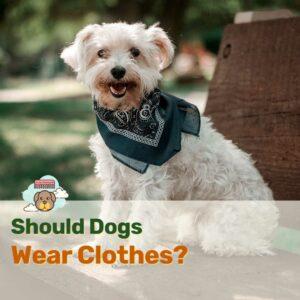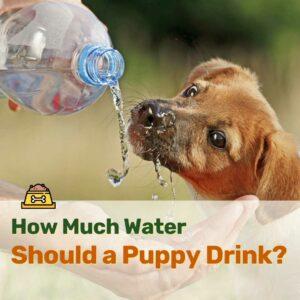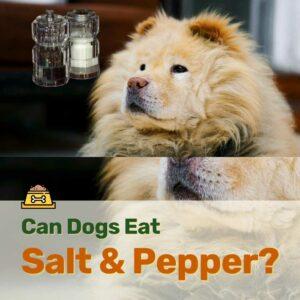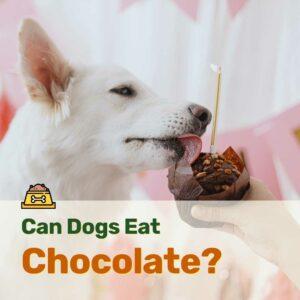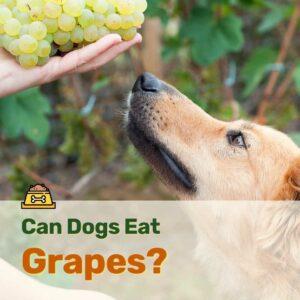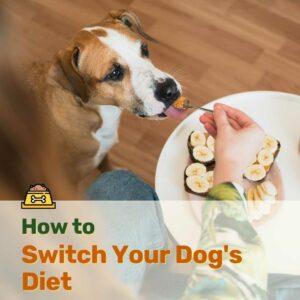We’ll dig deeper into the topic and share tips on safely preparing corn for your canine companion. So, let’s get started!
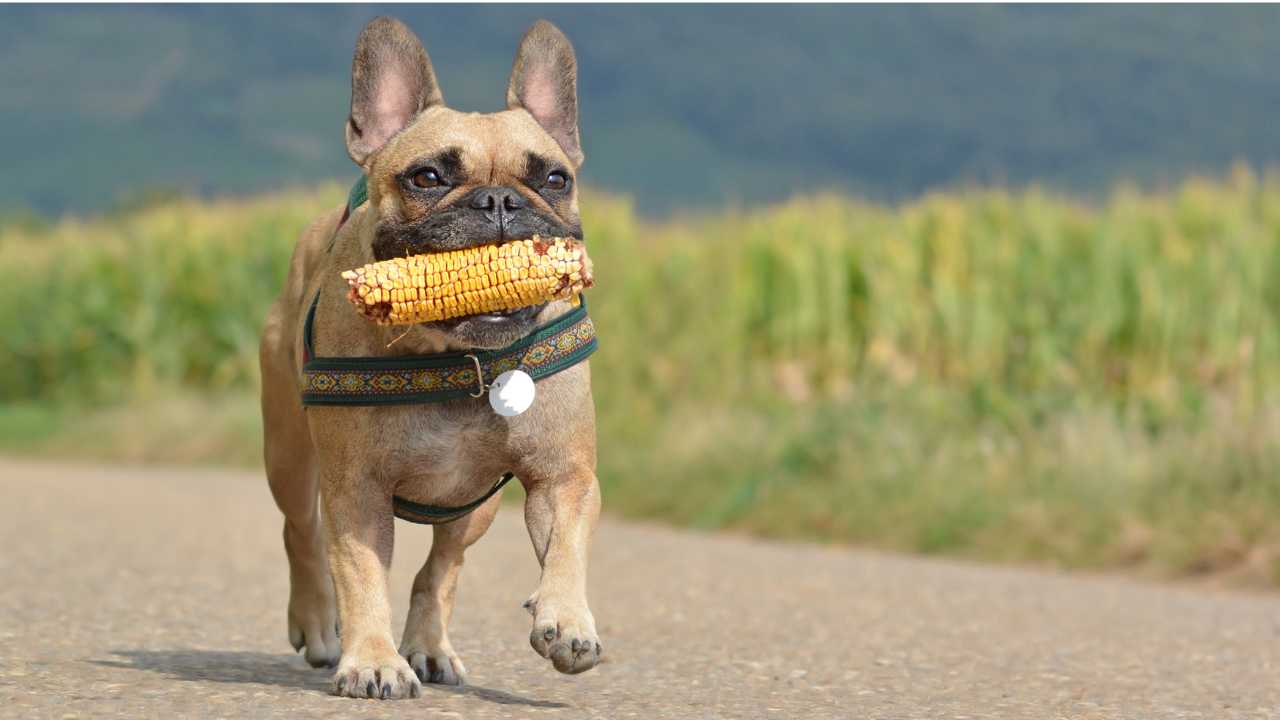
Is It Safe for My Dog to Eat Corn?
Corn by itself is not toxic to dogs. In fact, many veterinary nutrition experts believe that including corn in your dog’s diet can contribute to a balanced meal plan.
How Is Corn Good for Dogs?
First, let’s look at some important nutritional needs corn has, such as:
- Protein: plays a crucial role in keeping your dog’s muscles, skin, and coat healthy
- Carbohydrates: fuel your dog’s energy
- Linoleic Acid: This omega-6 fatty acid, found in corn, is something dogs can’t make on their own. It’s essential for helping your dog maintain healthy skin, a shiny coat, and a strong immune system.
- Antioxidants ( like vitamin E and beta-carotene ) : to support your dog’s immune system.
- Fiber: Corn is a fibrous food that helps your dog’s gut stay healthy and keeps things moving smoothly.
Having said so, not all corn parts are created equally.
So, Which Parts Of Corn Can Dogs Eat?
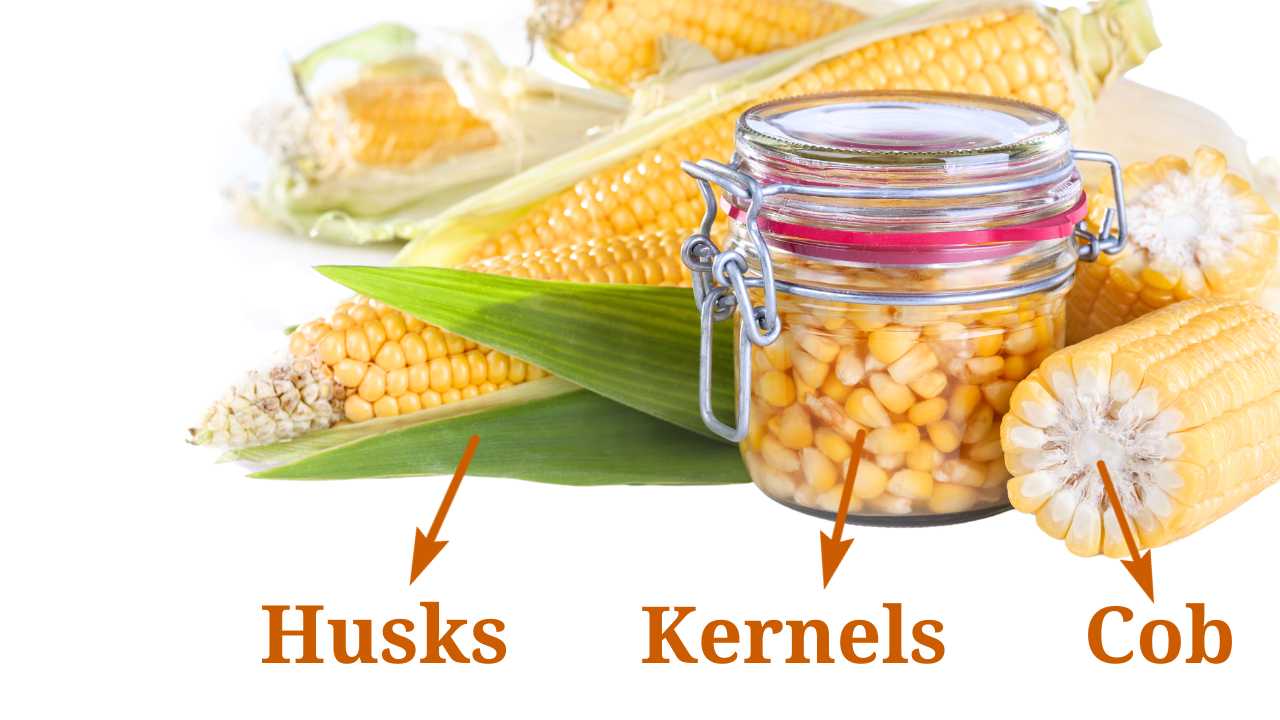
When it comes to corn, your dog can chomp down on cooked (or popped!) corn kernels without any worries. But, there are other corn parts that can spell trouble.
Husks:
Now, here’s a big no-no for your dog—corn husks. Those husks might even have sharp edges that can give your pup ouchies. If your dog gulps these down, it can lead to blockages, tummy aches, runny poop, or getting blocked up. So, when you’re tossing out corn husks, be sure your dog can’t get to them, especially if they’re the type to snoop around the trash!
Corn Kernels:
First up, those little yellow bits you find on the cob and the unpopped popcorn. Before sharing these with your pup, always cook them. You see, raw corn can be a bit tricky for dogs to digest, so cooking it up makes it easier on their tummy.
Cob:
Lastly, the core of corn, also known as the cob, is a big “no-dog” zone. Eating it could cause choking or irritate your dog’s tummy. Plus, your dog’s stomach can’t break it down properly. So, there’s a risk of a clog in their insides, and that’s serious business. it might even need surgery to fix.
Can Dogs Eat Corn On The Cob?
Now that we’ve established that corn cobs are a definite “no-go,” you might still be tempted to hold the corn and let your dog nibble on it, thinking you’re not giving them the cob directly, right?
While this might seem like a safe workaround, it’s not advisable. The thing is, you can never predict when your pup might take a bite of that undigestible cob.
Corn cobs don’t break down in your dog’s digestive system, no matter how small the pieces are – even in situation where they’re chewed into tiny bits, they can still cause serious problems. So, it’s best to steer clear of this idea altogether.
Here are 3 ways you can prevent this from happening:
- Avoid sharing a corn cob with your dog.
- Ensure you don’t leave a corn cob to other animals, such as squirrels or birds, as your dog might come across it.
- Dispose of the corn cob in a trash bin with a lid, rather than leaving it on the table or in an open area. This is the most common scenario to be cautious about.
What To Do If Your Dog Eats a Corn Cob?
If your dog eats a corn cob, it can be pretty risky.
Vomiting it up might lead to a blockage in their throat or even choking.
So, if you think your furry friend gobbled one down, or you find clues that they did, don’t waste time. Call your vet right away, like, ASAP.
They’ll tell you what to do next, which could mean taking your pet in for X-rays to find that corn cob, providing emergency care with fluids, or, in the worst case, even considering surgery. Remember, time is of the essence!
ok, We get it, corn cob is a no-no. How about other corn products?
Can Dogs Eat Canned Corn?
Canned corn isn’t the best snack for your dog. It’s loaded with sodium, too much salt can lead to dehydration and kidney issues. Some cans even sneak in sugar or stuff like xylitol, which is a no-go for dogs.
Before sharing, peek at the label for sodium and sugar. Fresh or unsalted corn is a safer bet. If you go for canned, give it a good rinse to lower the salt levels.
Can Dogs Eat Popcorn?
Yes, dogs can eat plain, air-popped popcorn in moderation. It’s a low-calorie snack, but avoid adding butter, salt, or seasoning, which can be harmful.
Always be cautious of uncooked kernels as they aren’t digestible. It can cause an upset stomach, along with the risk of choking. If you introduce popcorn to your dog’s diet, start with small amounts to ensure it agrees with their tummy.
Can Dogs Be Allergic to Corn?
Yes, dogs can be allergic to corn (less than 1%) , although it’s not as common as some other food allergies.
If you suspect your dog has a corn allergy, consult with a veterinarian for proper diagnosis and guidance on suitable dietary options.
How Much Corn Can A Dog Eat?
The ASPCA recommend treat make up no more than 10% of a dog’s daily diet.
Can Puppies Eat Corn?
Once puppies are able to eat solid food, they can eat small amounts of plain, cooked corn as an occasional treat.
But, it shouldn’t be a significant part of their diet. Ensure the corn is fully cooked and removed from the cob to avoid choking hazards.
Prioritize a well-balanced puppy food diet for their growing needs. Consult your veterinarian for specific dietary recommendations for your puppy’s age and breed.
Why Do I See Corn In My Dog’s Poop?
If a dog eats whole corn kernels, it may appear undigested in dog feces. This is because the hulls, or the outer casing of the kernels, don’t digest completely as it moves through the digestive system.
In dog food, corn is usually ground for better absorption.
This is normal and should not be a concern.
To Summarize: Can Dogs Eat Corn?
“Corn has many benefits when included in pet foods. It has been reported to be nutritionally available, lead to quality stools and regular elimination, promote palatability, and possess functional benefits to extrusion.”
– Isabella Corsato Alvarenga, Amanda N. Dainton, and Charles G. Aldrich from Department of Grain Science and Industry, Kansas State University [1]
Yet, corn husk and corn cob are off limits for your dog.
Here’s How To Safely Prepare Corn For Your Dog
- Cook It: Always cook corn before giving it to your dog. You can boil or steam it. Avoid adding any seasonings, salt, or butter.
- Remove the Kernels: After cooking, cut the corn kernels off the cob. This eliminates the risk of choking and makes it easier for your dog to digest.
- Moderation: Treat corn as an occasional snack, not a staple in their diet. Too much corn can upset their stomach due to its fiber content. Just remember that treat make up no more than 10% of a dog’s daily diet.
- Check for Allergies: If it’s your dog’s first time trying corn, start with a small amount and watch for any adverse reactions. Allergies are rare but possible.
- Avoid the Cob: Never let your dog chew on the corn cob. It’s a choking hazard and can lead to digestive issues.
- Fresh and Frozen: Fresh, cooked corn is best. You can also use plain frozen corn, but again, ensure it’s cooked and remove it from the cob.
Remember, while corn can be a safe and tasty treat for many dogs, every dog is unique. Always consult your veterinarian if you have any concerns or questions about adding new foods to your dog’s diet.
Additional Guides on Dog-Friendly Foods:
Explore what your pup can and can’t safely eat
- Can Dogs Eat Grapes? Uncover Essential Safety Insights
- How to Switch Your Dog’s Diet: A Step-by-Step Guide
- Can Dogs Eat Chocolate? Uncover the Shocking Risks and Prevention Tips
References:
[1] A review: nutrition and process attributes of corn in pet foods by Isabella Corsato Alvarenga, Amanda N. Dainton, and Charles G. Aldrich, from Department of Grain Science and Industry, Kansas State University, Manhattan, Kansas, USA
https://www.tandfonline.com/doi/epdf/10.1080/10408398.2021.1931020?needAccess=true

